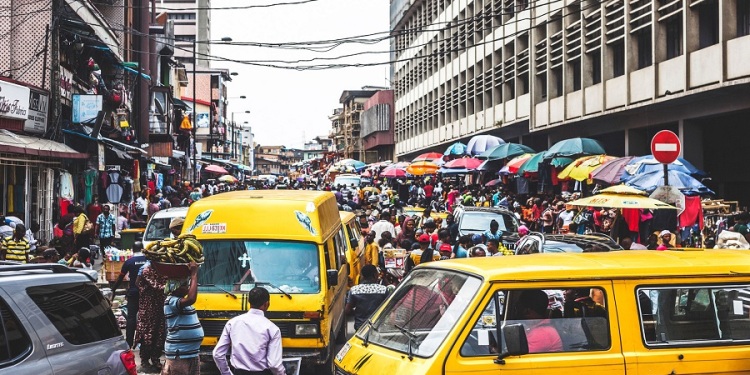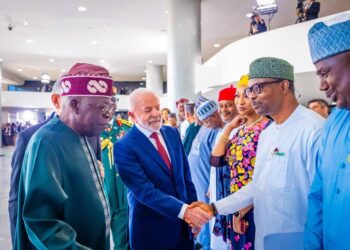Article summary
- Fuel prices in Nigeria have risen by 150% to 200% following the removal of fuel subsidies, leading to skyrocketing energy costs.
- Nigerians, particularly in Lagos, are adjusting to new economical lifestyles by opting for alternative modes of transportation and walking longer distances.
- Reduced vehicular movement and increased reliance on public transportation and walking have been observed in major cities like Lagos and Port Harcourt.
Amid skyrocketing energy costs in Nigeria following the removal of fuel subsidies, many Nigerians are adjusting to new economical lifestyles, a survey by Nairametrics has shown.
Sequel to the pronouncement on May 29 by President Bola Ahmed Tinubu, fuel prices have jumped by between 150% and 200% across the country.
In response to this, residents of Lagos State, for example, are adjusting to new modes of transportation to commute to and from work.
Over the past week, there have been scenes of droves of people trekking to and from work and business places. This is partly due to the noticeable reduction in the number of vehicles plying major roads across the state.
More on how Lagisians are adjusting to the new reality
During the rush hours in the mornings and evenings around the Trade Fair and Alaba International markets, thousands of traders and shoppers were seen over the week walking long distances to and from the markets, which were scenes that were uncommon hitherto.
Emeka Akudinobi, who is a trader at Alaba International Market, told Nairametrics that the sudden jump in the cost of fuel was making it difficult for traders and shoppers to buy enough fuel to make use of their vehicles.
He drew our attention to some parking lots, which on normal days would be occupied, but had become semi-empty. He added that had it not been for the recent improvement in power supply, the situation would have been much worse as most shop owners depend on generators for power supply.
Empty parking lots at Trade Fair
At the Trade Fair in Ojo Local Government Area in Lagos, parking lots that had hitherto been occupied to capacity were half empty.
David Ogbuokiri, a trader and car owner, told Nairametrics that before the subsidy removal, he would fill his tank with N13,500. But now, he fills the same tank with N40,000.
“It doesn’t make sense using the vehicle every day,” he told Nairametrics.
An office assistant, who identified herself as Esther, was recently seen walking along Oba Akran Road with a few other colleagues. Asked where they were heading, Esther said they were walking to Ogba. She said they were walking the distance because the cost of transportation has shot up beyond their means.
Relative normalcy in Abuja
Our correspondent in Abuja said the situation is normal. However, residents and businesspeople are watching and hoping that the labour unions’ negotiations with the federal government will yield a positive outcome.
Monday Adebayo, a resident of Abuja, said he and his friends now go out when it is necessary, as the cost of transportation has risen by as much as 200% on most routes.
Another resident of Mpape Hills, Abuja, Rafael Asukwo, said going out to places in Abuja now requires using the “one stone to kill many birds” approach as the cost of transportation to achieve just one task is not worth it.
Low vehicular movement in Port Harcourt
In Port Harcourt, vehicular movements have noticeably reduced, says Cephas Dressman, a resident of the Garden City. Many car owners have resorted to either embarking on long walks or making use of the available public transportation system, another resident, Dieye Moore, told Nairametrics.
Iyene Udoh, who also lives in Port Harcourt, said people are watching and strategizing on ways to cut costs and make ends meet as the effects of subsidy removal bite harder.
Dr. Ihenye Joshua, an economic analyst, posits that the increase in fuel prices will spiral across all sectors of the economy over the coming months in terms of the pricing of goods and services.
He stated that there are really tough times ahead for Nigeria’s vulnerable. He urged the federal government to put palliatives in the form of transportation subsidies for the poor and vulnerable Nigerians who have depended on cheap transportation aided by fuel subsidies over the decades.
Already, there are reports that some state governments have taken the initiative to reduce workdays from five to three per week. But analysts say that may reduce labour productivity in the long run.

























In Abuja before the removal of petrol subsidy private vehicle owners sometimes use their cars as taxis, especially saloon cars. Now, most so this everyday while going to and from their places of work. This happens all g my route to work, from Lugbe to Federal Secretariat.
In Abuja before the removal of petrol subsidy private vehicle owners sometimes use their cars as taxis, especially saloon cars. Now, most do this everyday while going to and from their places of work. This happens along my route to work, from Lugbe to Federal Secretariat.
Subsidy removal didn’t affect those that use to trek before to and fro, only now they’ve more companions as they trek…
As a Cooperative Management fellow, I would say it has opened room for everyone to import and sell as they wish. In other words, in the long run supply will exceed demand which normally will reduce the price. Just like when MTN came out new I personally bought my first sim card for almost 30k when a bag of cement was 900naira and then 1:01second call I pay 100naira for it. Today that same sim is almost free
If in the cause of the present situation with the removal of fuel subsidy and the people begin to have the availability of the electricity power supplies to cushion the effect, it will be termed as robbing Peter to pay Paul and Nigerians will soon learn to cope with the hardship as usual but if not…. let’s watch out and see!